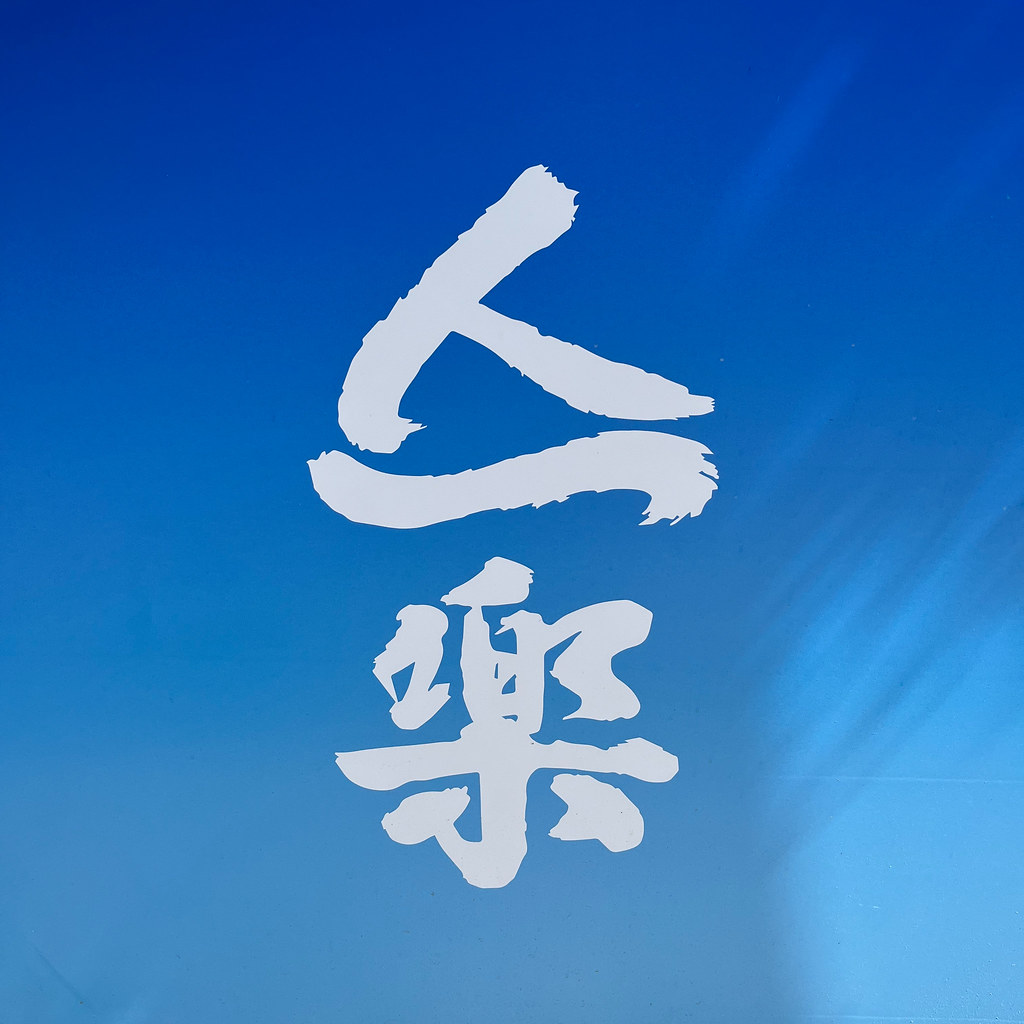Last week I made my very first (and very overdue) trip to Sanya (三亚). Sanya is a city on the south side of the southernmost island off of mainland China. It’s basically the farthest south you can go on land in China. As such, it’s got a nice tropical climate and a bit of a beach party vibe (at least at the touristy places where most of us visitors from Shanghai end up).
The place we went is called 后海村 (Hòuhǎi Cūn), and it’s a smaller, relatively less developed part of the island focused on surfing. Yes, surfing… surfing tiny, tiny waves. I didn’t realize how small waves could be and still allow for “surfing” (of sorts) until this trip. Perfect for kids.
Anyway, there are lots of surf shops around the island, and I ran into this name on one:

The name of the shop was “Jile,” and the bottom character is clearly the traditional character 樂 (lè), which is 乐 (lè) in simplified. But what’s up with that top character? Is it even Chinese? Some of my Chinese friends with me weren’t even sure. So naturally I asked the staff in the shop about the character.
They explained that 亼 (jí) is a real Chinese character, but it was chosen for its visual appeal: it totally looks like a person (人) on a surfboard (一)! I thought that was really cool.
I later looked up the character 亼 in Pleco and found that it is a variant of 集 (jí). So literally, 亼樂 (Jílè) means something like “gather bliss.” It also has all kinds of other positive homophonic associations. Altogether a pretty cool name.
Then, checking the Outlier Character Dictionary within Pleco, I discovered that the ancient form of the character 亼 looks like this:

Sure, it looks like a letter “A,” but to extend Jile’s pictograph, it also looks like a person carrying the surfboard. It probably took that poor 人 a really long time to be able to put down that board and start surfing… Glad he made it in the end.

